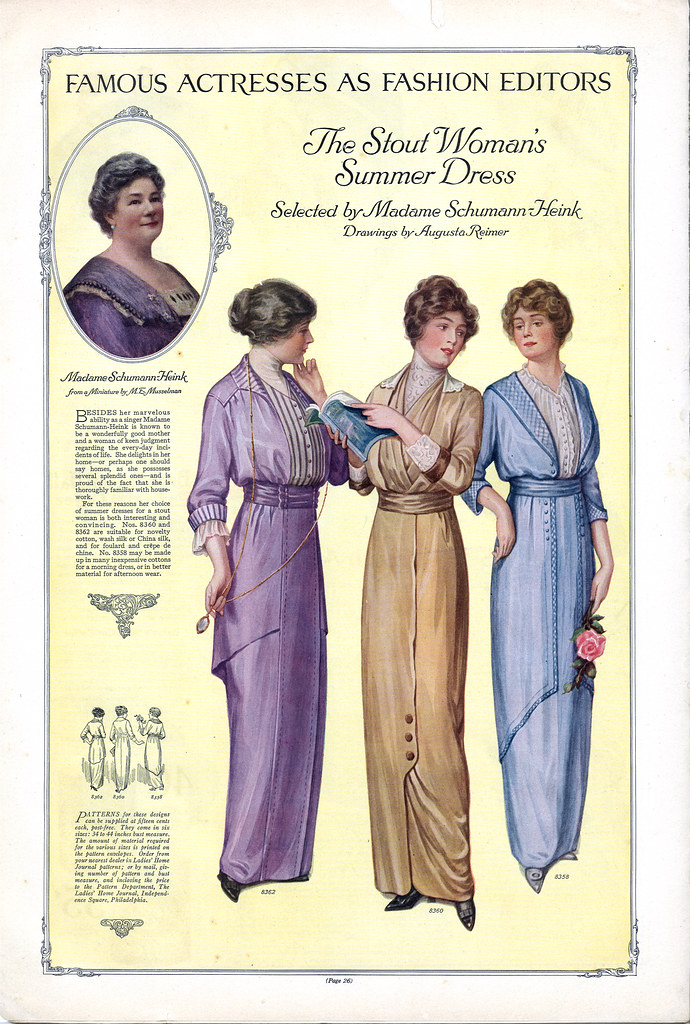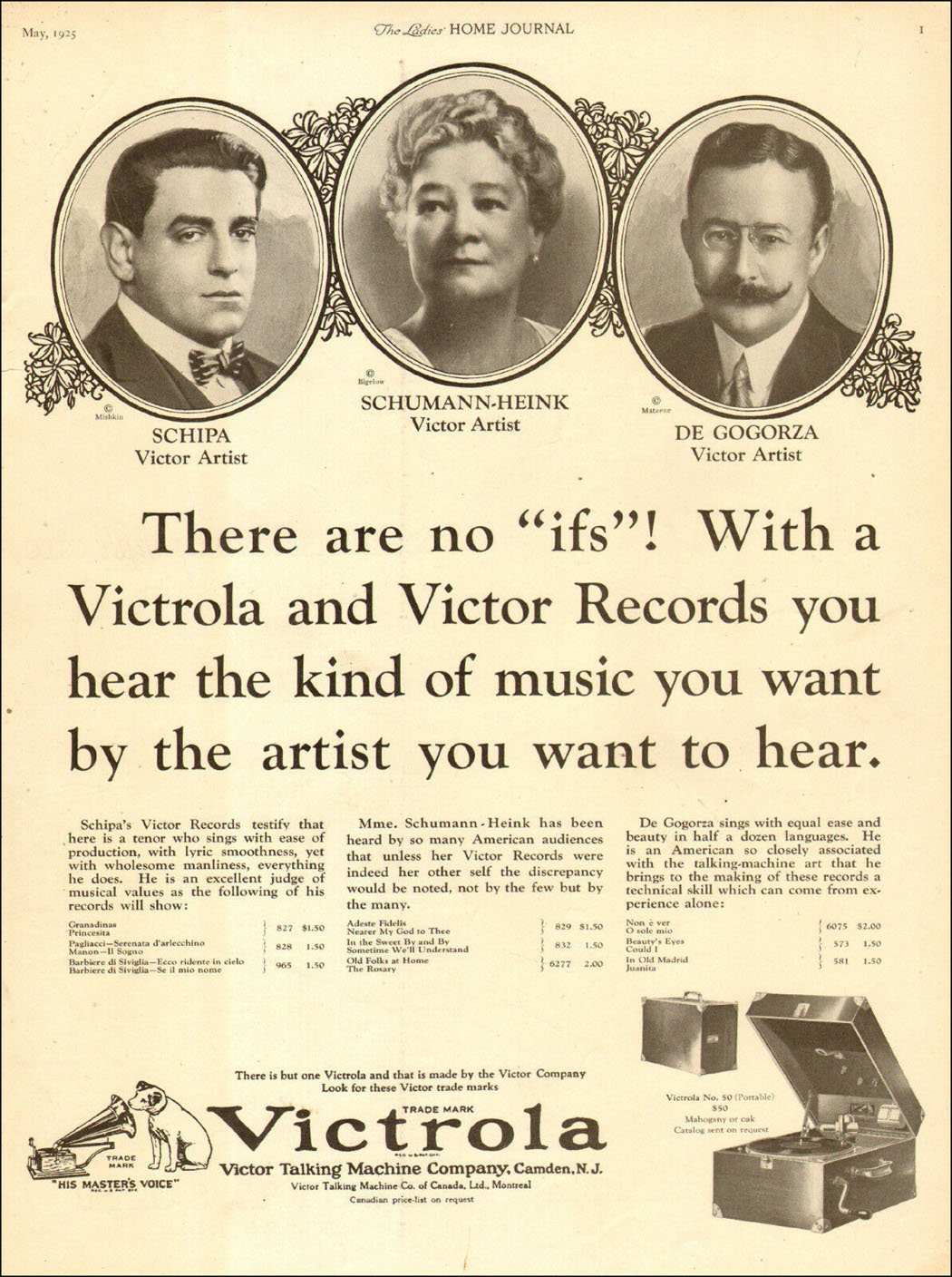|
.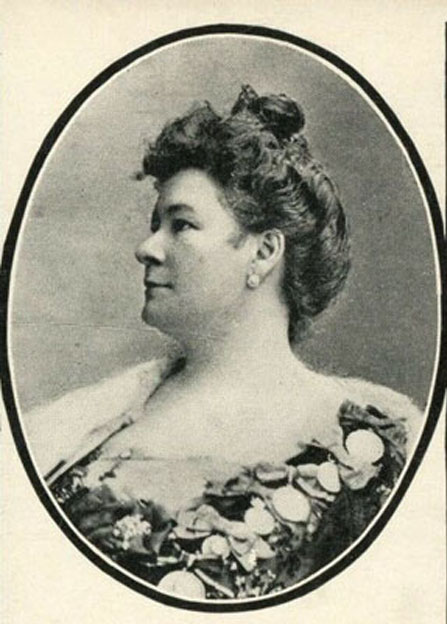
Recording
Artist and Willa Cather Prototype
By Doug Boilesen, 2020
Ernestine Schumann-Heink has been identified
by scholars (1) as a prototype used by
Cather in her opera related story Paul's Case, i.e., the prototype
for the "soprano soloist."
Besides starring on the opera stage
Schumann-Heink made phonograph records and was featured in advertisements
which added her celebrity status, artistic reputation, and the prestige
of opera to the promotion of the early phonograph.
This gallery provides examples focused
on Schumann-Heink and her popular culture role as seen in advertisements
and other ephemera.
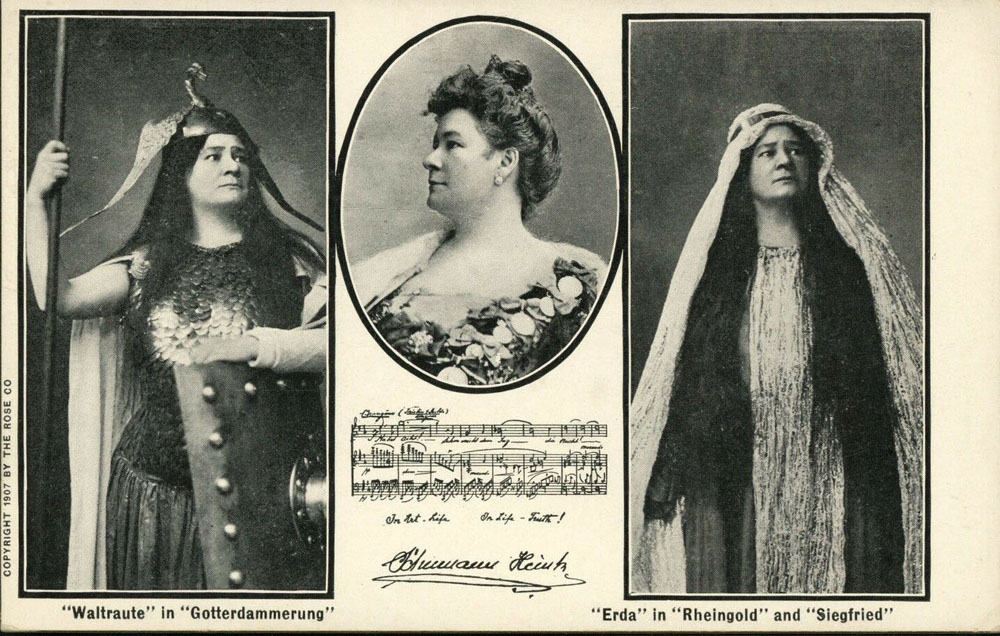
Schumann-Heink Postcard,
1907
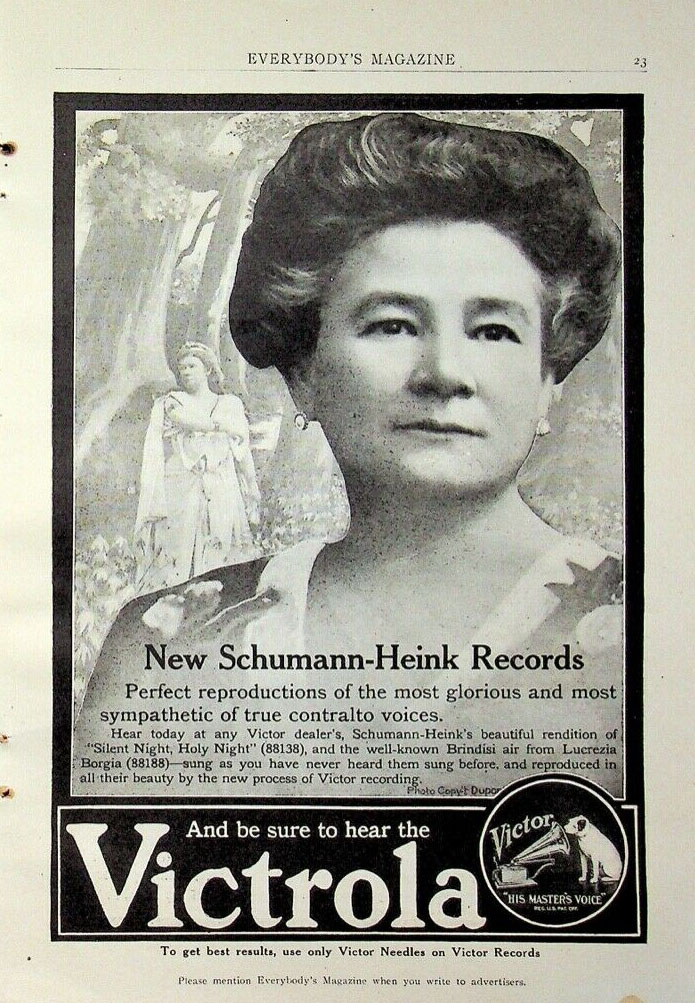
Everybody's Magazine,
1910
..
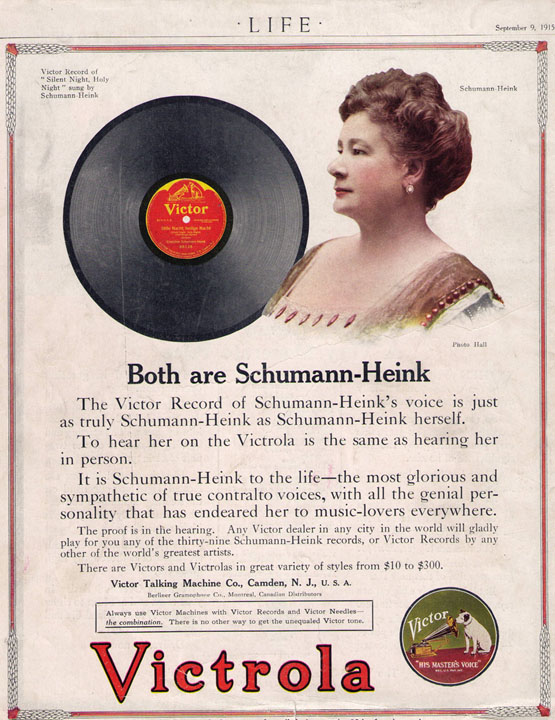
Life, September
9, 1915
See Phonographia's
"Both are" for additional examples of the 1914 - 1916
advertising campaign which wanted to assure consumers that what you
were purchasing was "just as truly" the artist as the artist him or
herself.
Mme. Schumann-Heink and Geraldine
Farrar
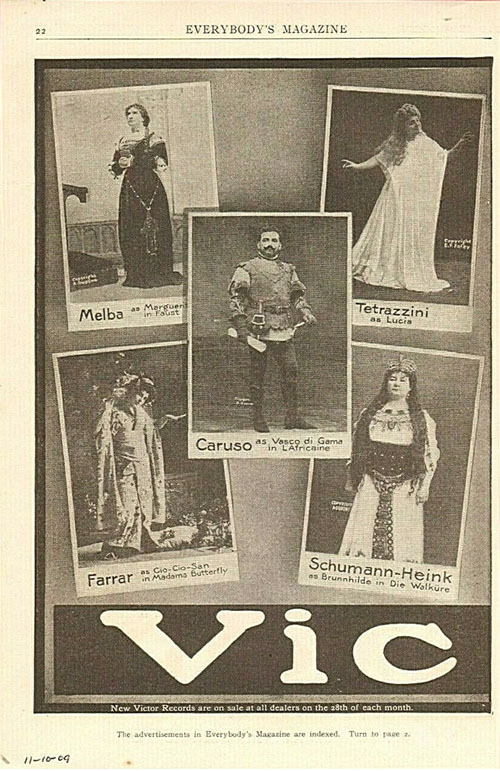 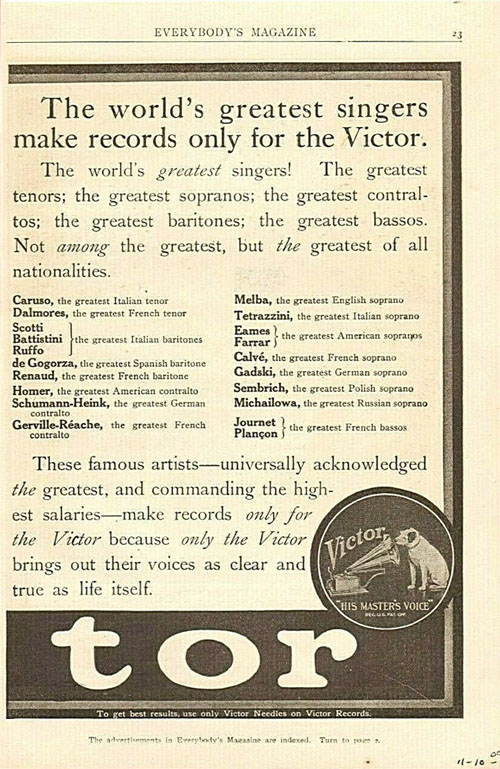
Farrar and Schumann-Heink,
November 10, 1909
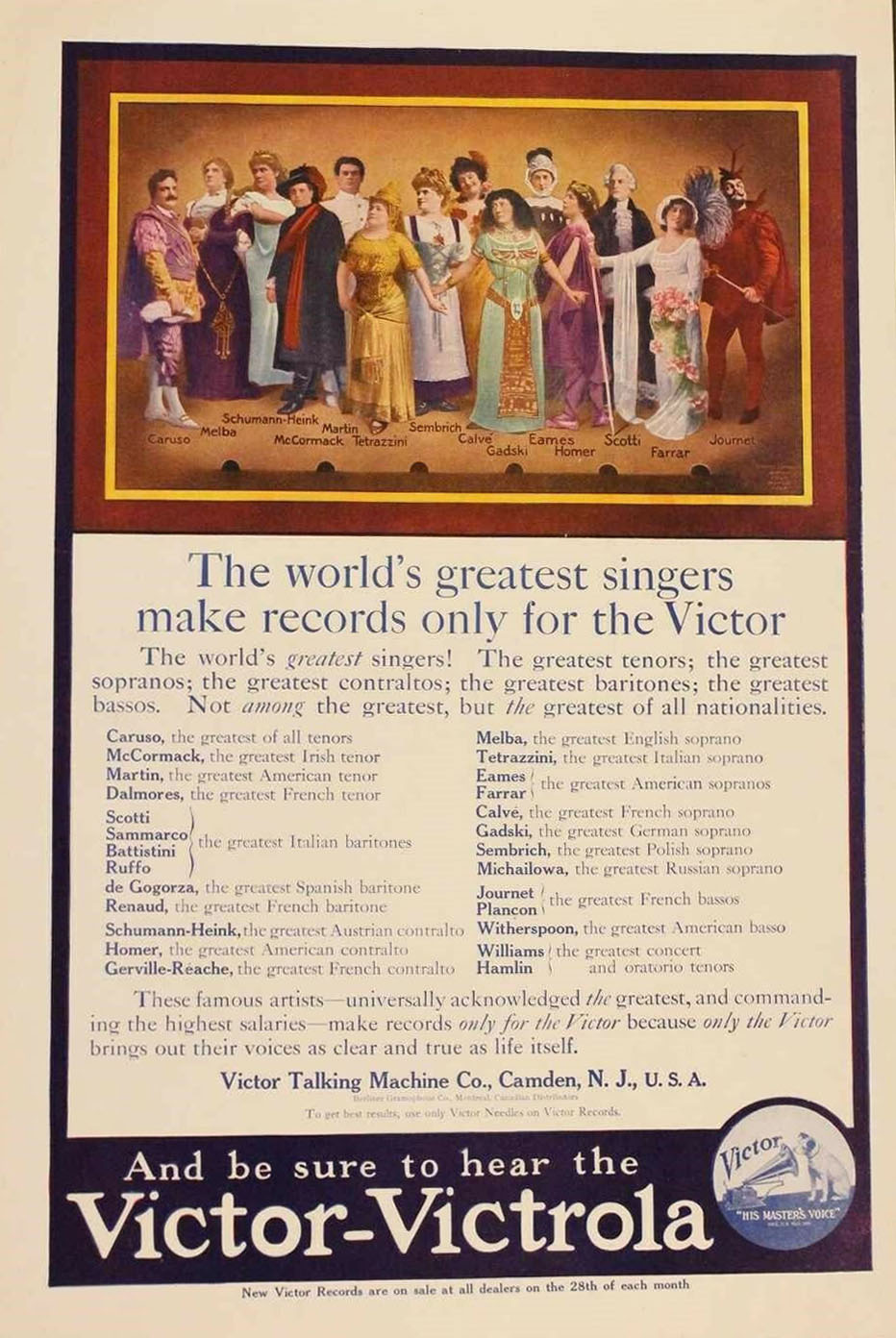
Farrar and Eames, the greatest
American sopranos, 1911
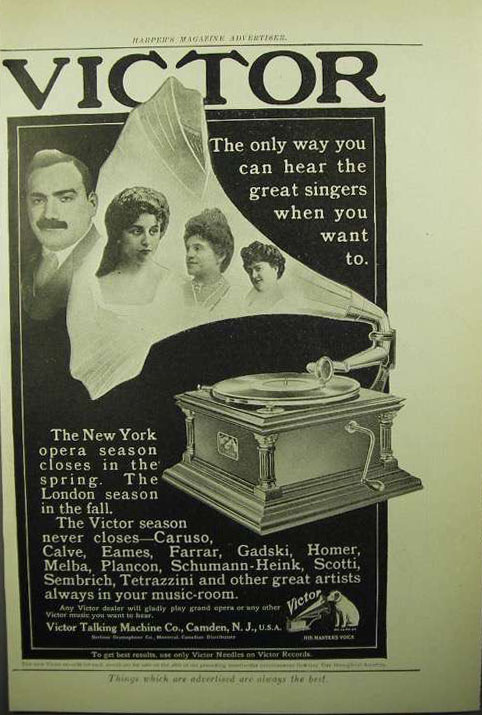
Farrar and Schumann-Heink,
Harper's Magazine, 1908
Mme. Schumann-Heink
and Geraldine Farrar
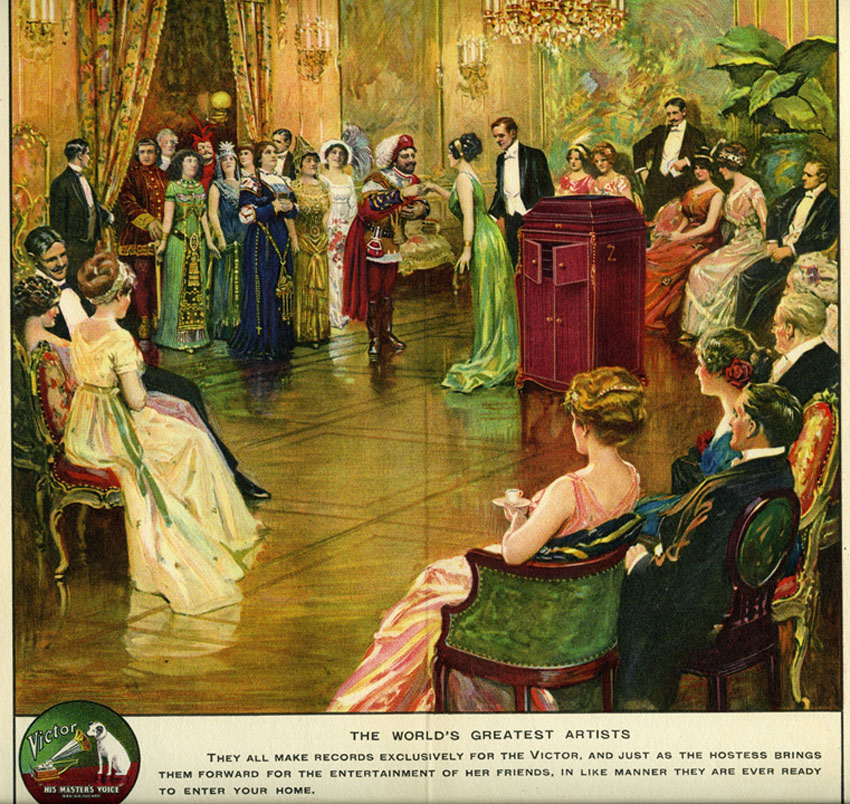
.
Exclusivity and hosting the world’s
greatest artists like Farrar and Schumann-Heink (with Caruso of course
here leading the procession) were privileges that came with owning
a Victor. Wealth and high social status were obvious and intended
parts of these ads. Victrola Christmas Brochure, 1914.
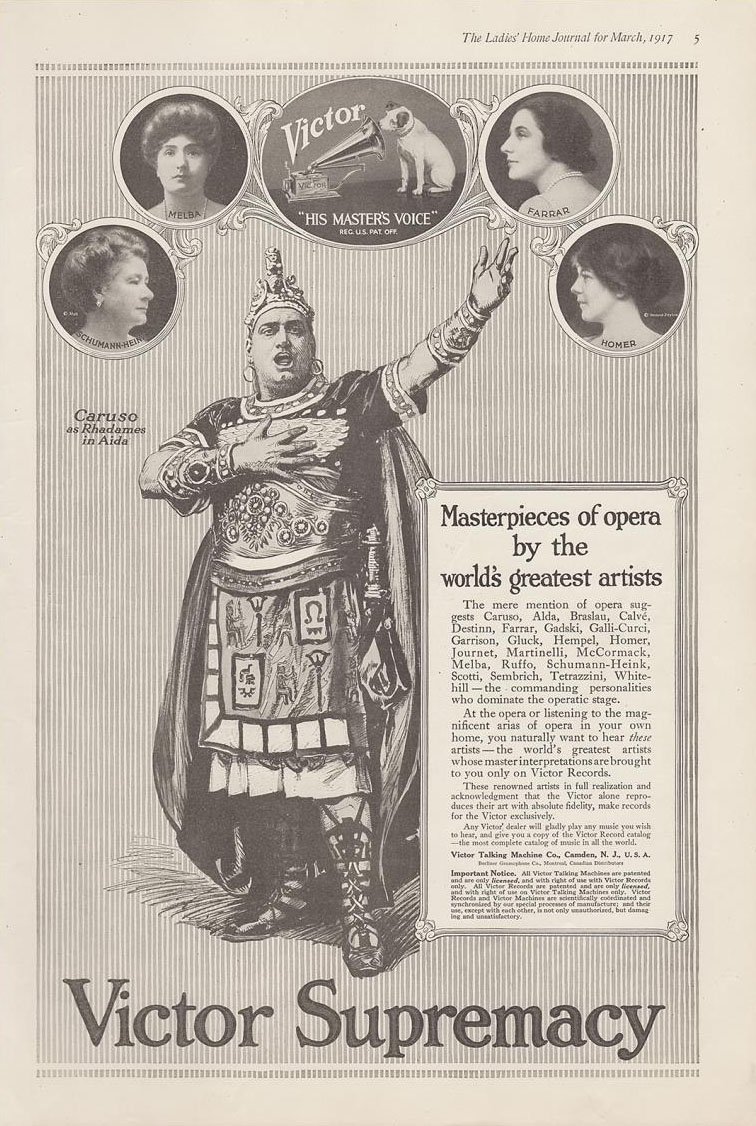
Farrar and Schumann-Heink
- Masterpieces of opera by the world's greatest artists, "Victor
Supremacy" March 1917.
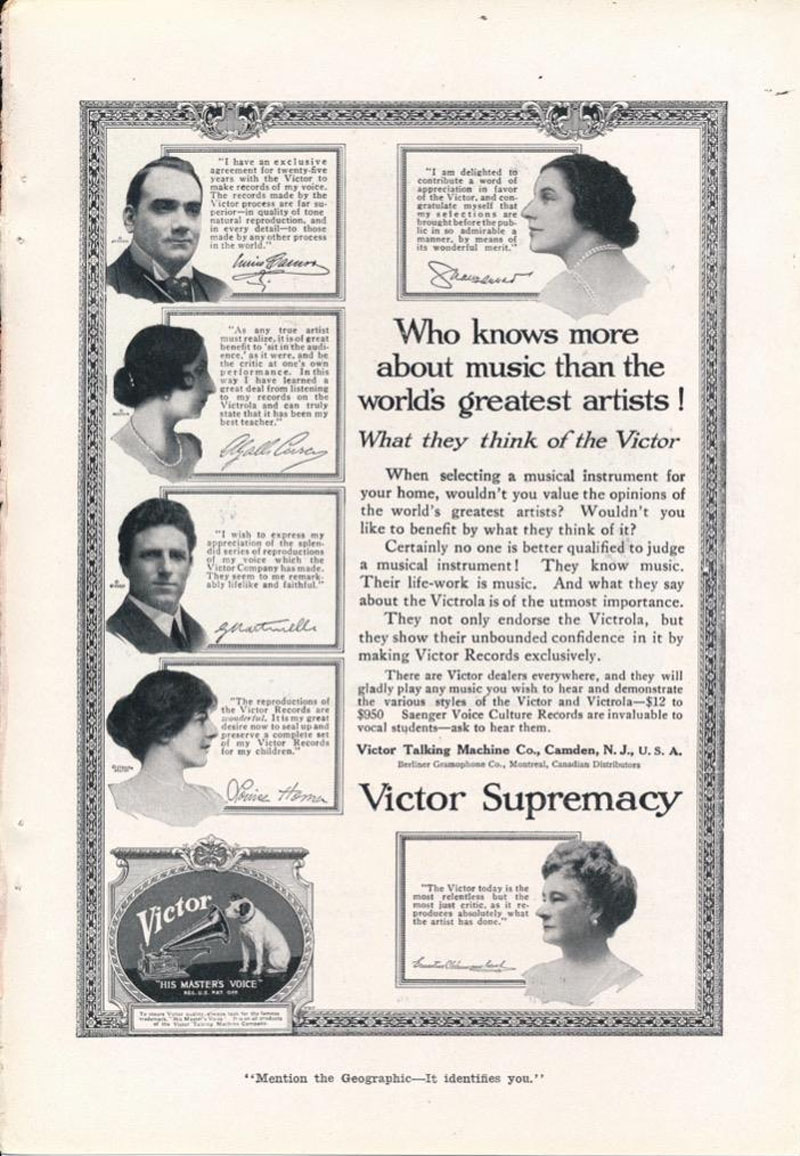
Schumann-Heink - One of the world's
greatest artists! "Victor Supremacy" The Geographic,
1918.
.
Mme. Schumann-Heink,
Geraldine Farrar and Lucrezia Bori
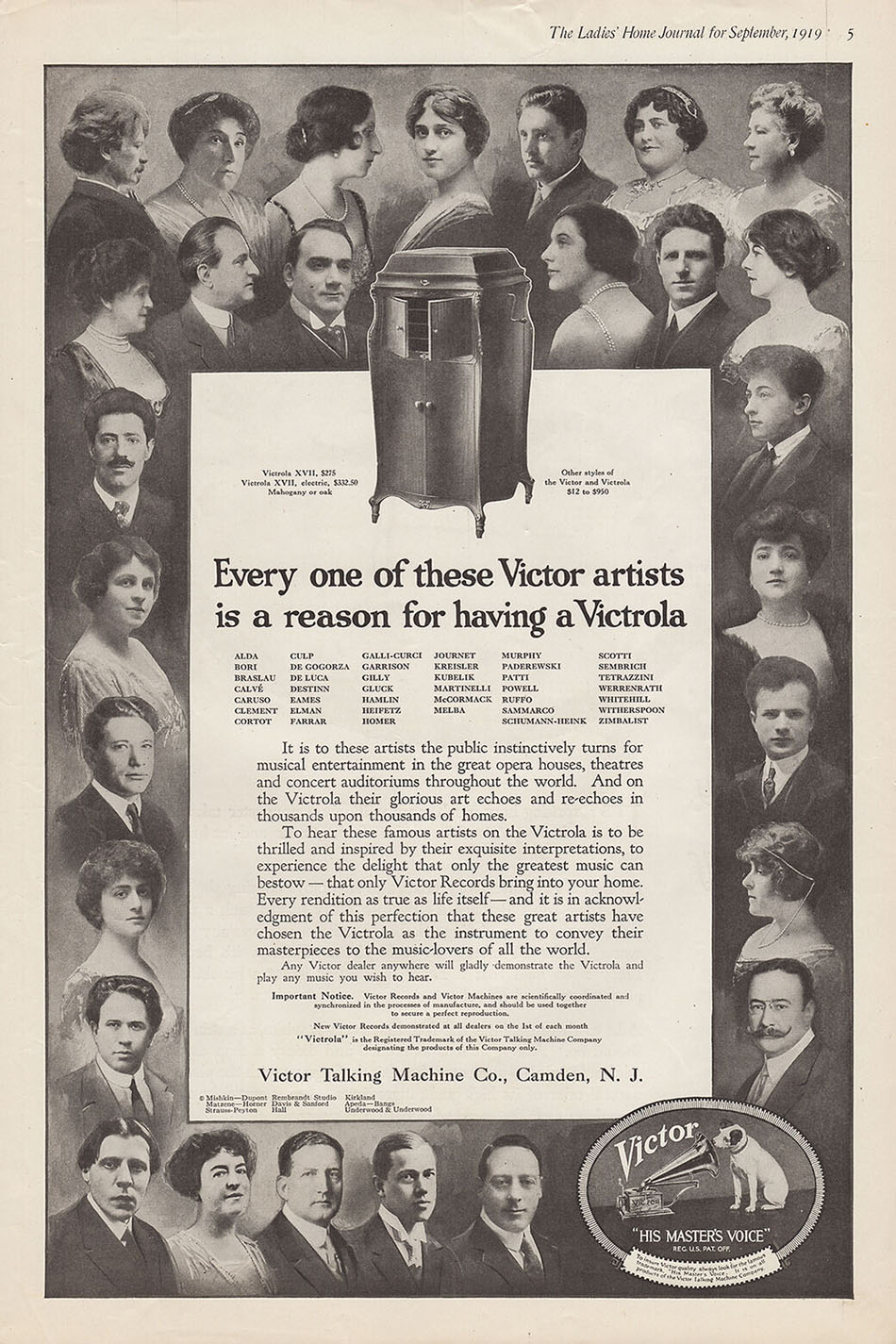
Farrar, Schumann-Heink
and Bori, The Ladies' Home Journal, September 1919
Mme. Schumann-Heink
and Geraldine Farrar
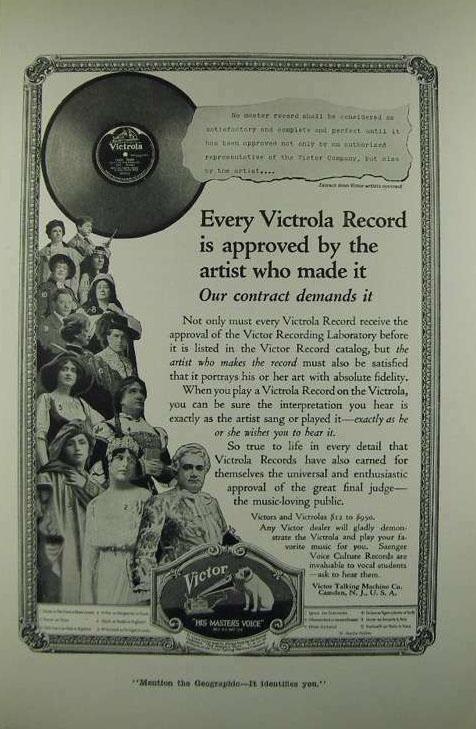
Farrar and Schumann-Heink,
the National Geographic 1919
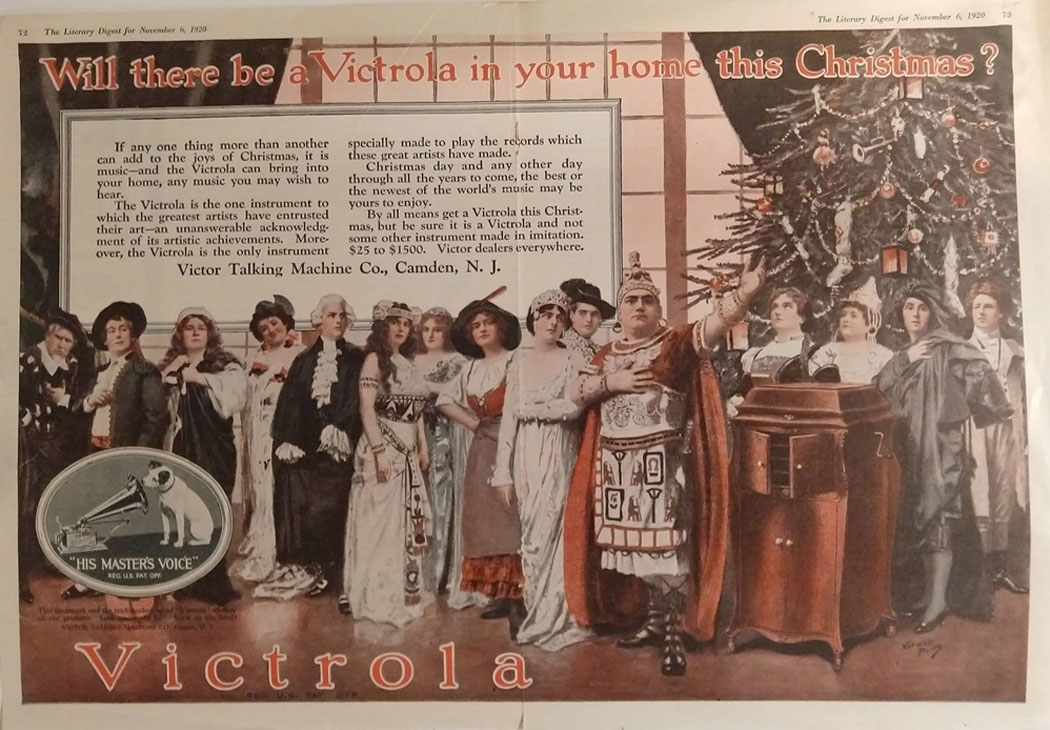
Farrar and Schumann-Heink,
The Literary Digest for November 6, 1920
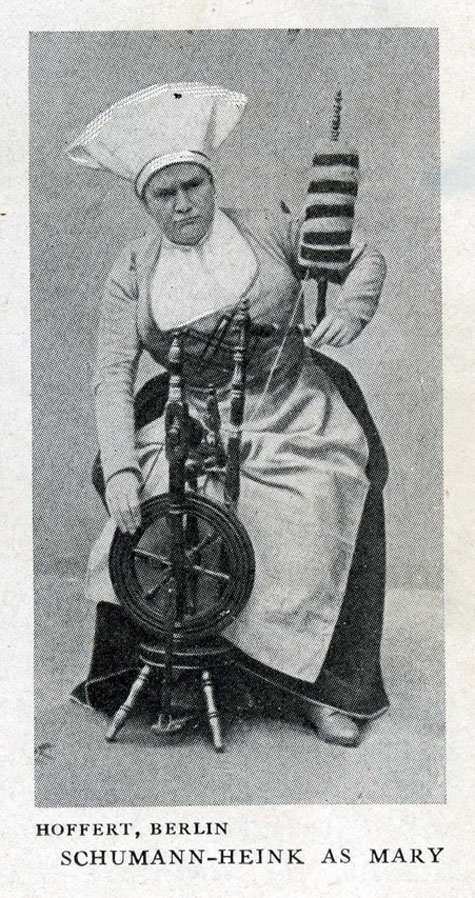
Schumann-Heink as Mary
in The Flying Dutchman, The Victrola Book of the Opera (1921),
p. 123
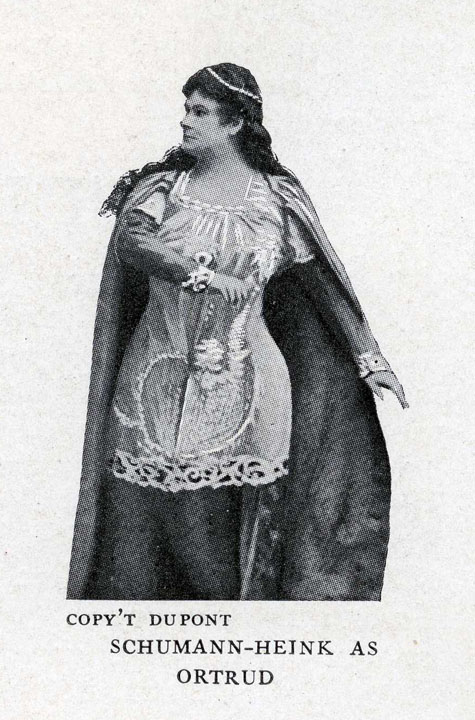
Schumann-Heink as Ortrud
in Lohengrin, The Victrola Book of the Opera (1921), p.
184

Schumann-Heink as Fidès
in Le Prophète, The Victrola Book of the Opera (1921),
p. 318
.
Mme. Schumann-Heink
and Geraldine Farrar

Farrar and Schuman-Heink,"The Chosen
instrument by the world's greatest artists." The Ladies' Home
Journal" November 1918.
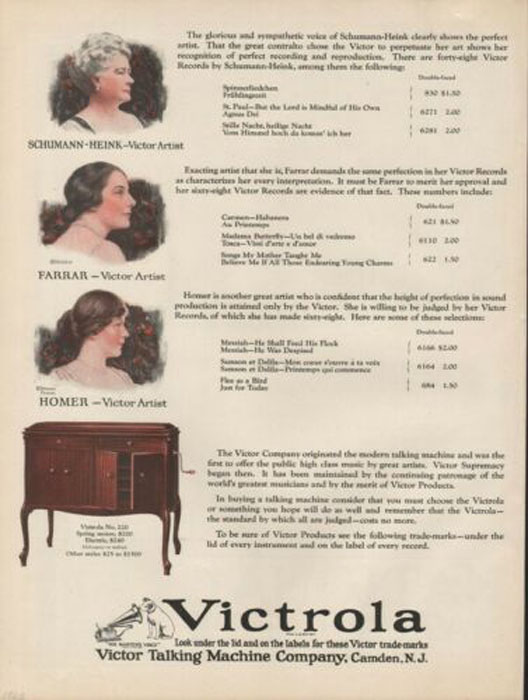
1923 Farrar and Schumann-Heink
and Homer - "Victor Supremacy"
Mme. Schumann-Heink,
Geraldine Farrar, and Mary Garden
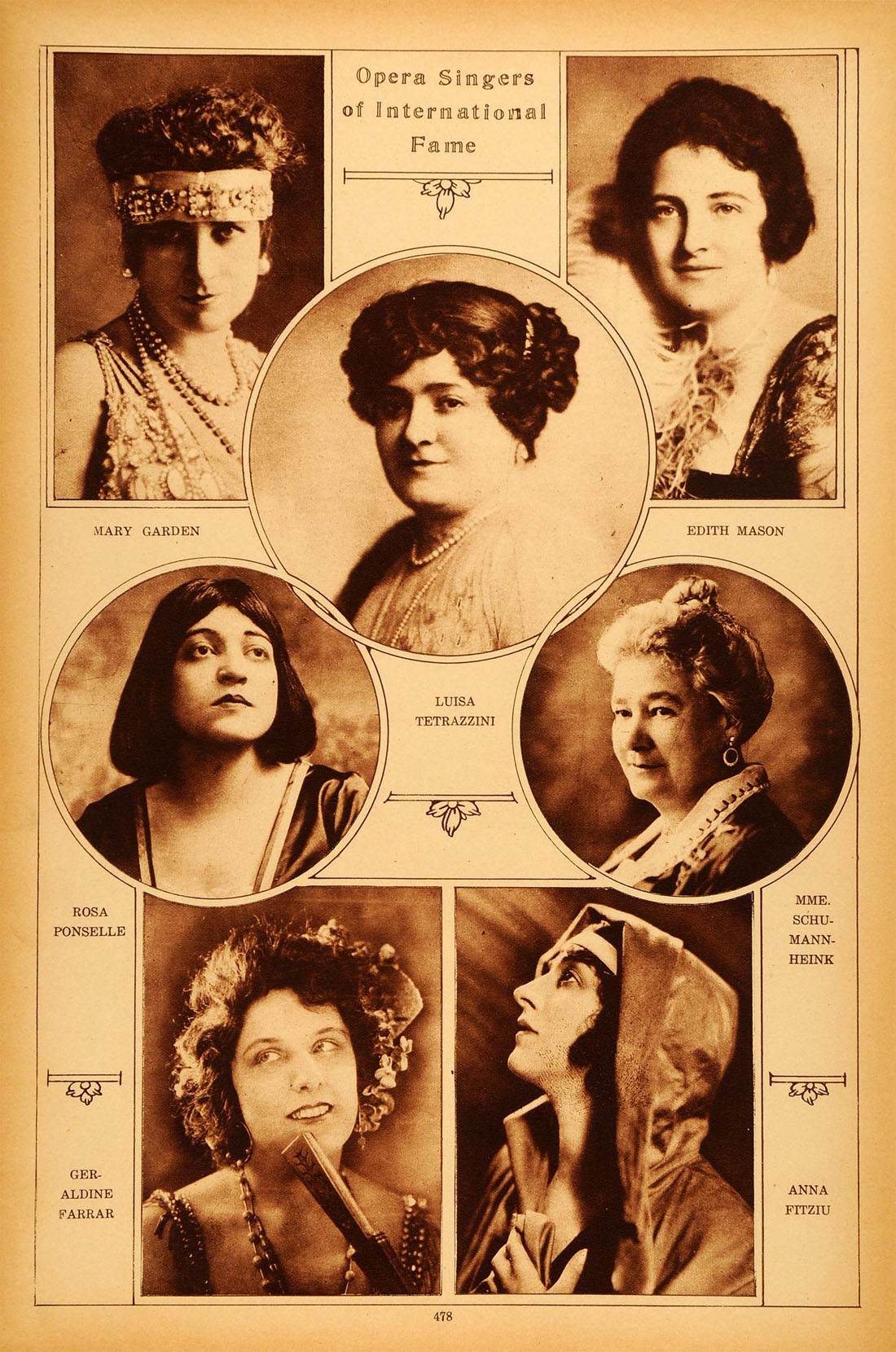
Farrar, Schumann-Heink,
Mary Garden - 1922 sepia rotogravure.
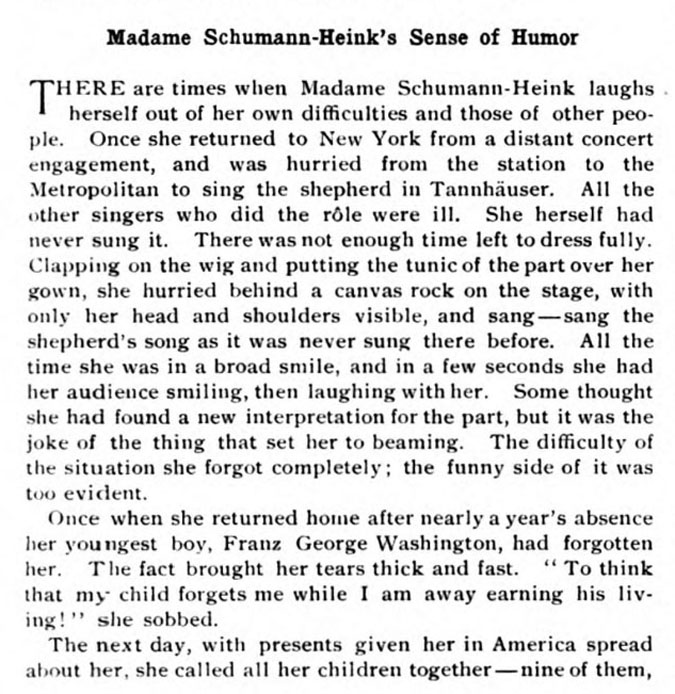
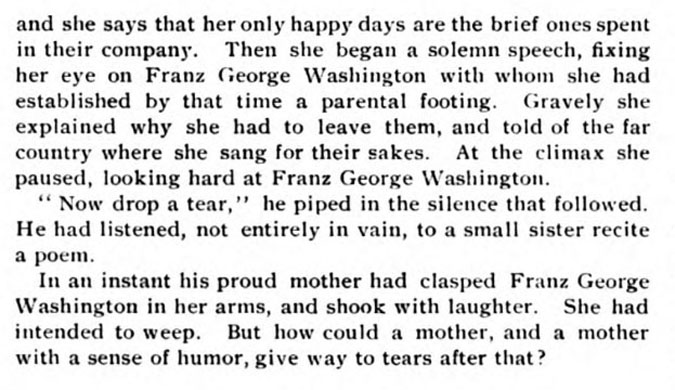
"Madame Schumann-Heink's
Sense of Humor," The Saturday Evening Post, October 31,
1903
.
Schumann-Heink as “fashion
editor” The Ladies’ Home Journal, 1914.
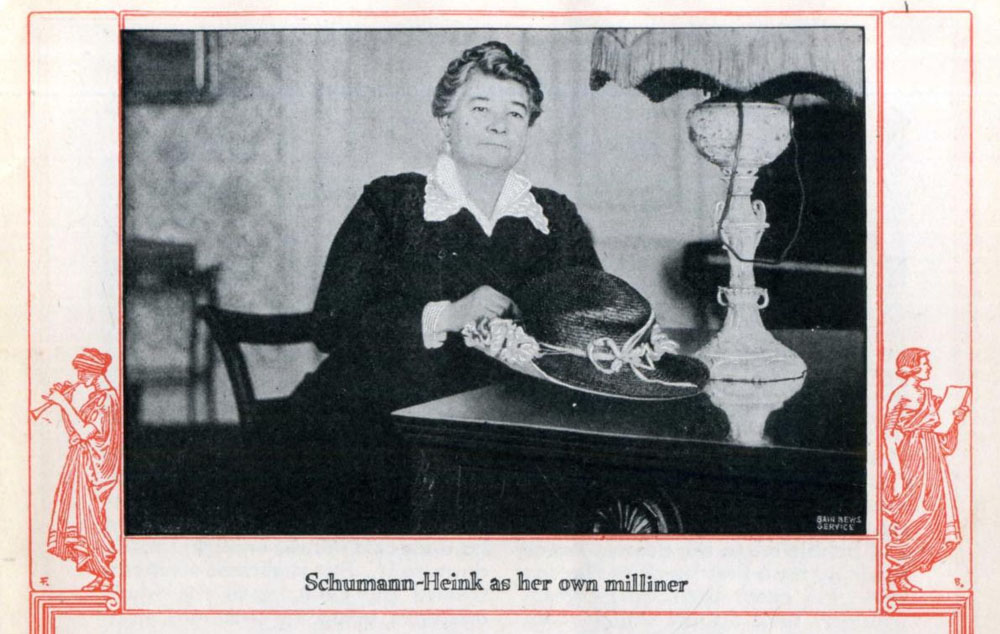
New Victor Records
October 1920.
"Mme. Schumann-Heink
has been heard by so many American audiences that unless her Victor
Records were indeed her other self the discrepancy would be noted,
not by the few but by the many." The Ladies' Home Journal,
May 1925.
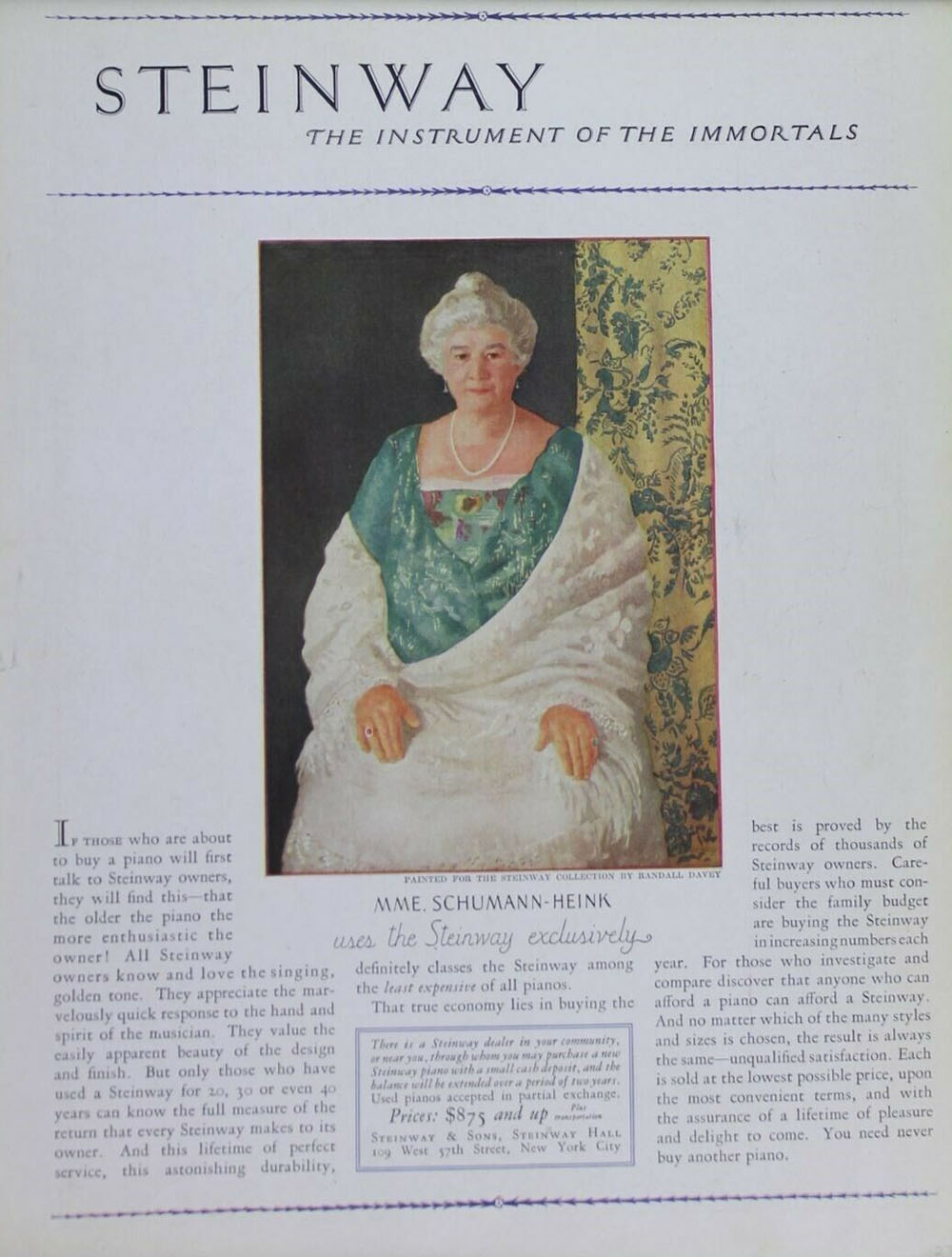
"Mme. Schumann-Heink
uses the Steinway exclusively", Steinway Piano ad, 1927.
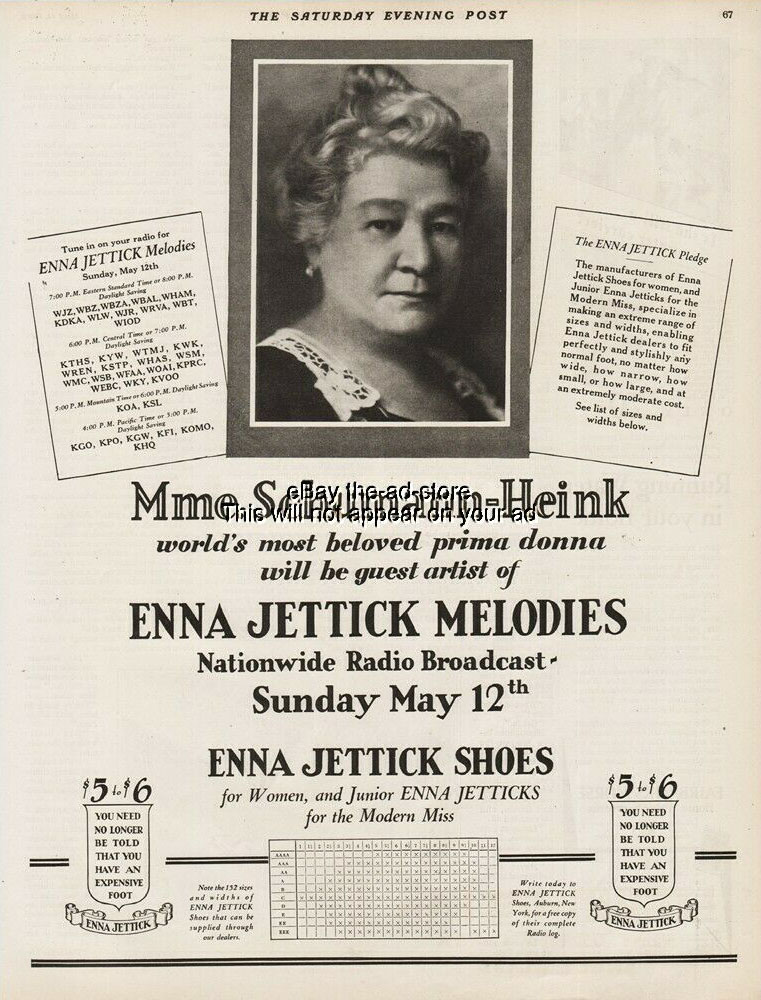
Mme. Schumann-Heink Radio
Broadcast, Enna Jennick Shoes ad,The Saturday Evening Post,
1929.

Phonographia
|
